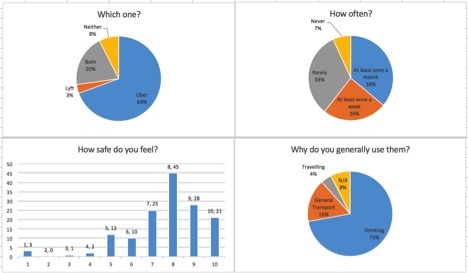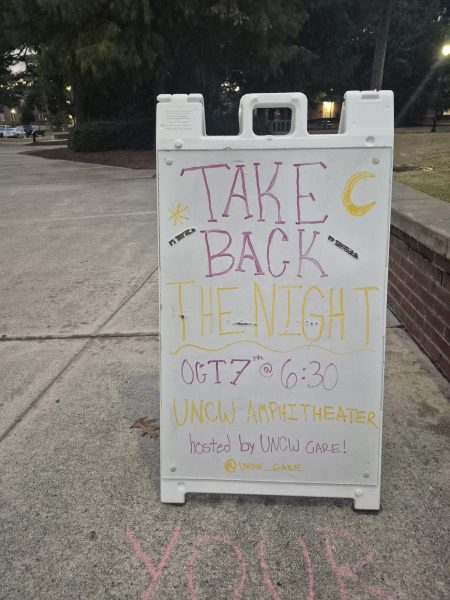Allegations of dangerous Uber/Lyft rides result in a decrease of popularity

UNCW students were surveyed regarding their use of the ride-share apps, and they revealed varying–though mostly positive–attitudes toward the apps.
Uber and Lyft, two mobile ride-share apps, became hugely popular the past couple of years; there are over 43 million monthly users between the two of them. Easy access, hassle-free payment and almost 24/7 service have been some of their main appeals to audiences across the world.
However, as more and more individuals utilize these ride-share mobile apps, more and more reports have surfaced of the employed private drivers causing harm to their clients in one way or another, and this has resulted in a marked decrease in the apps’ utilization.
Similar reports have come to light around the world, and UNC Wilmington students, too, have chimed in to report some such incidents.
Thus far in 2017, there have been nine deaths, 26 assaults and 61 sexual assaults, and more incidents involving imposters, felons and kidnapping have occurred, according to Who’s Driving You, a public safety campaign.
Uber, specifically, is available in over 670 cities worldwide, but on Sept. 30, London — one of the app’s foremost centers of commerce — will no longer allow Uber to conduct business in the city.
“Transport for London has today informed Uber London Limited that it will not be issued with a private hire operator license after expiry of its current license on 30 September,” said Transportation for London (TfL) in a statement released Sept. 22. The statement noted that one of the reasons behind the decision was “[Uber’s] approach to reporting serious criminal offenses.”
“No further comment will be made by TfL pending any appeal of this decision,” wrote TfL.
Similarly, the app has been banned in Berlin by the government.
Students at UNCW, like those at numerous universities across the world, utilize Uber and similar apps, and to determine the relative safety of these apps in the Wilmington area, The Seahawk conducted a survey of over 150 UNCW students.
At the university, students use Uber more than they use Lyft. Many say that it was their way of getting rides if they were intoxicated or if they did not have cars themselves.
Some also added that they would use the app if parking was scarce at their destinations, if they were heading to an airport, or if they needed to get around places with which they were not familiar.
Most of the UNCW students surveyed appreciate the services and their availability. The majority of students felt fairly safe using Uber and/or Lyft, and when asked to rate their safety on a scale of 1 to 10, the bulk of the ratings were around an 8.
Some even said they felt safer using Uber than a traditional taxicab.
However, some mentioned that the drivers can be “sketchy,” and a few said they would never use one alone.
“I’m a young girl, so I would feel more comfortable riding with another woman, rather than alone with a man,” said one UNCW student. The individual hoped that Uber would implement an option that would allow for such a choice.
A few students noted specific instances when using the ride-share apps that they felt particularly unsafe. One such student reported a car accident with Uber, and another said that they experienced sexual harassment when in the car with a Lyft driver.
The student in the accident did contact Uber, and the charge was cancelled for that ride. The student who used Lyft said they will not use the app again.
Students involved in this survey were not named due to the survey being anonymous.












